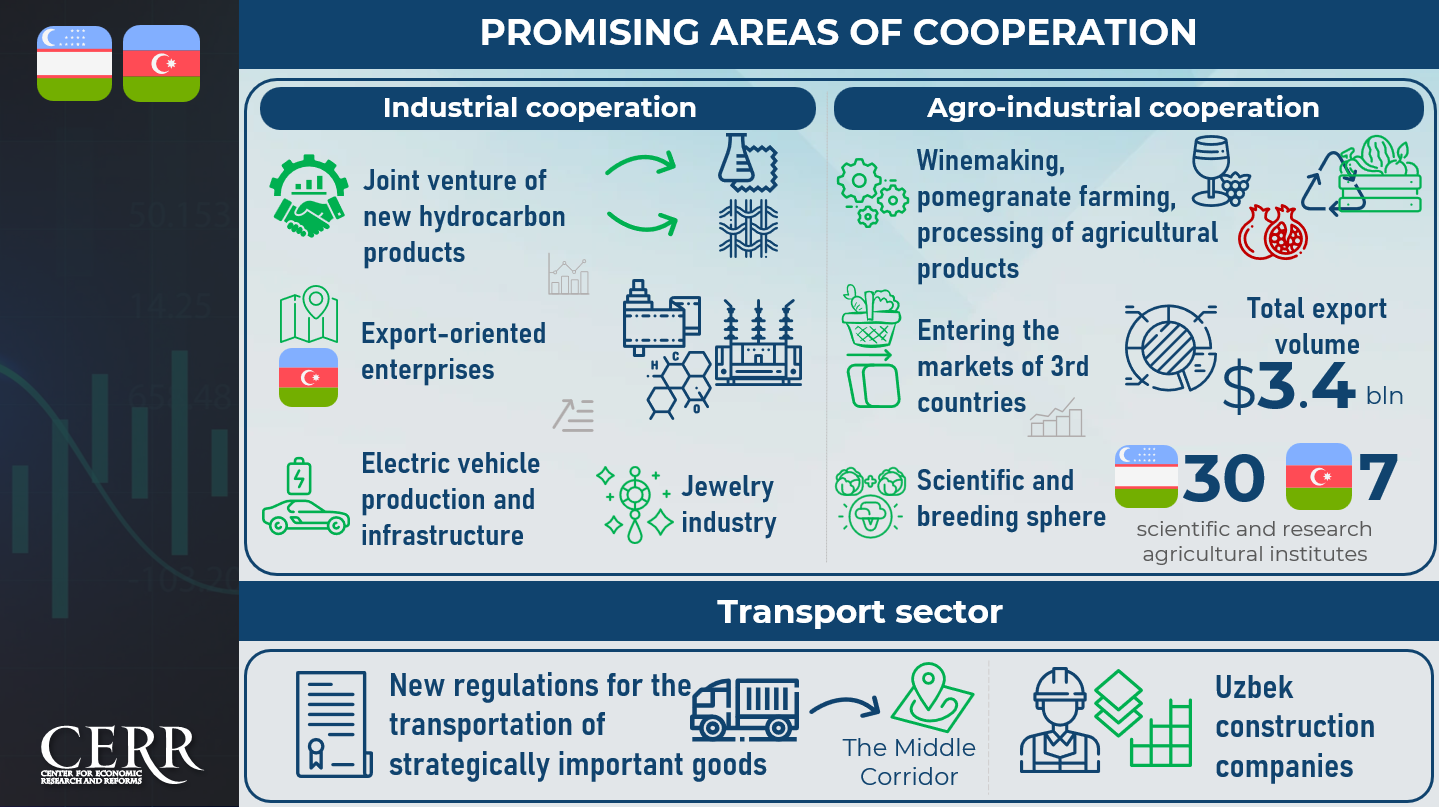On August 22 of this year, the International Institute of Central Asia in Tashkent hosted a roundtable discussion titled “Uzbekistan and Azerbaijan: New Prospects for Alliance and Interregional Cooperation.” The event was organized jointly with the Embassy of Azerbaijan in Uzbekistan and was dedicated to the 30th anniversary of the establishment of diplomatic relations.
The meeting was attended by CERR deputy director Khurshed Asadov.
Participants noted that in recent years trade, economic, and investment cooperation between Uzbekistan and Azerbaijan has been developing dynamically, reflecting the strategic nature of bilateral relations. Both countries are actively expanding their trade turnover, diversifying the range of mutual supplies, particularly in the agro-industrial sector, textiles, petrochemicals, and mechanical engineering.
In his remarks, Asadov emphasized that both countries are focused on identifying and implementing promising projects in processing industries with high added value, capable of generating significant multiplier and synergistic effects for both economies.
It was underlined that in this regard, establishing joint production of new hydrocarbon-based products appears particularly promising — for example, synthetic fabrics, which are in high demand in Uzbekistan due to its developed textile and garment sector, as well as carbon fiber, which has a wide range of applications.
According to the expert, both countries are interested in creating export-oriented industries producing goods with high added value. In this context, given Azerbaijan’s strategic logistics location and favorable business conditions, Uzbekistan is interested in placing export-oriented enterprises in Azerbaijan’s special economic zones in areas such as textiles and electrical engineering.
Within the framework of the global “green” agenda, cooperation in electric vehicle production and infrastructure development for e-transport also appears highly promising.
In the context of industrial cooperation, the jewelry sector should also be mentioned. Uzbekistan may be interested in attracting Azerbaijani jewelry companies and craftsmen. In addition, jewelry fairs could be organized in both countries to showcase the works of artisans.

Asadov also briefed participants on promising areas and measures for further expansion of trade, economic, and investment cooperation between the two countries.
In the agro-industrial complex, significant potential exists for cooperation in areas where both sides have comparative advantages — such as viticulture, pomegranate cultivation, and the industrial processing of agricultural products. Moreover, cooperation and joint mechanisms for entering third-country markets with agricultural goods could enhance the competitive advantages of both countries and open new niches.
Another promising direction is the development of new regulations for the transportation of strategically important goods (such as sugar, vegetable oil, and other foodstuffs) and products of major companies through the Middle Corridor, with preferential tariffs.
In his speech, the expert expressed confidence that cooperation in agricultural science and breeding would also become highly relevant — in particular, establishing close partnerships and implementing joint research and breeding projects between the agricultural research institutes of the two countries (7 in Azerbaijan and more than 30 in Uzbekistan).
In conclusion, the CERR deputy director noted that, despite the historic successes already achieved, there remains significant untapped potential that can be realized through deeper economic cooperation.























leave a comment